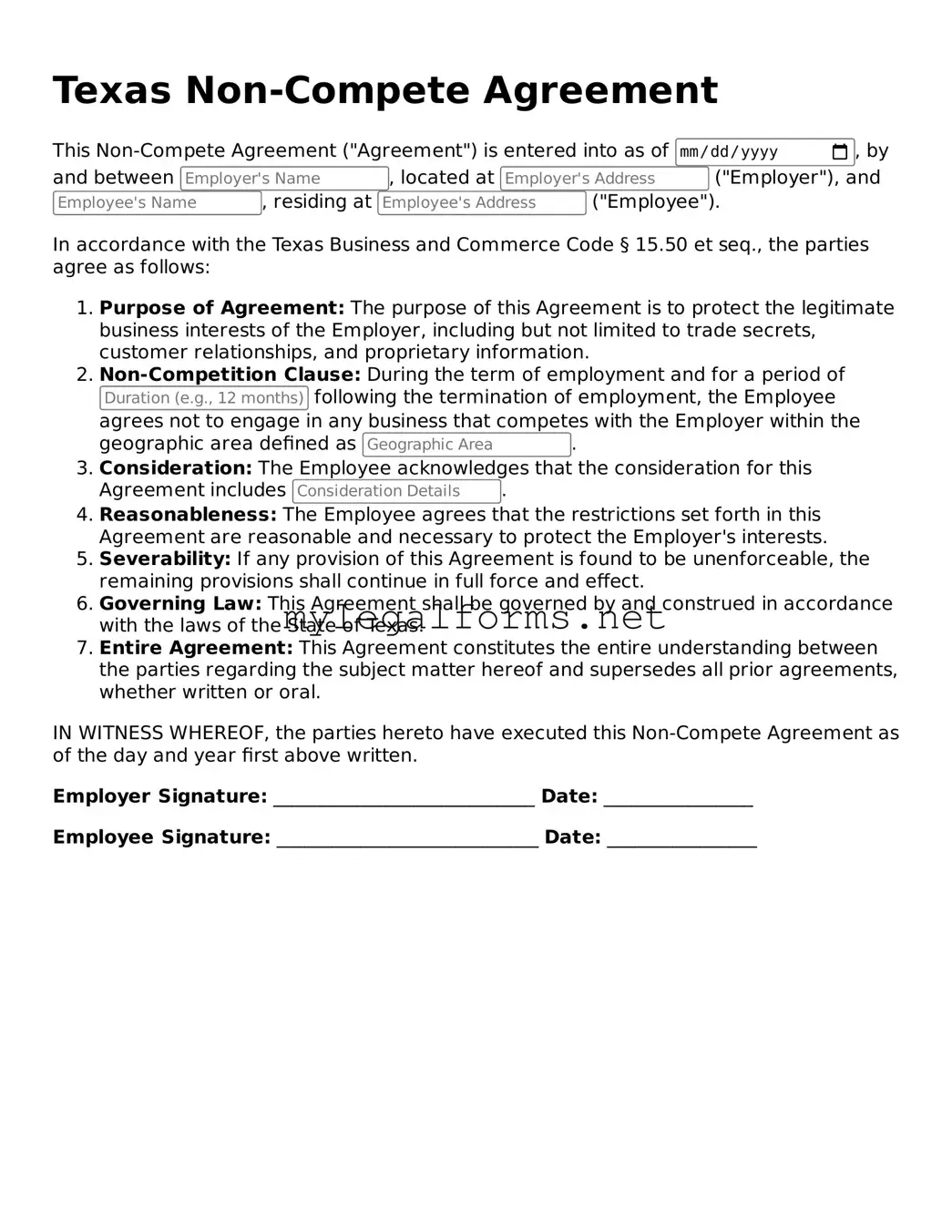Non-compete Agreement Document for Texas State
A Texas Non-compete Agreement form is a legal document that restricts an employee's ability to work in a competing business after leaving their current employer. This form aims to protect the employer's business interests and confidential information. Understanding its implications is crucial for both employers and employees in navigating their rights and obligations.
Launch Non-compete Agreement Editor

Non-compete Agreement Document for Texas State
Launch Non-compete Agreement Editor

Launch Non-compete Agreement Editor
or
⇓ PDF Form
Complete the form at your pace — fast
Finish your Non-compete Agreement online and download the final version.